Search the Community
Showing results for tags 'Language'.
-
Hello community! I want to share a new module I've been working on that I think could be a big boost for multi-language ProcessWire sites. Fluency is available in the ProcessWire Modules Directory, via Composer, and on Github Some background: I was looking for a way for our company website to be efficiently translated as working with human translators was pretty laborious and a lack of updating content created a divergence between languages. I, and several other devs here, have talked about translation integrations and the high quality services now available. Inspired by what is possible with ProcessWire, I built Fluency, a third-party translation service integration for ProcessWire. With Fluency you can: Translate any plain textarea or text input Translate any TinyMCE or CKEditor (inline, or regular) Translate page names/URLs Translate in-template translation function wrapped strings Translate modules, both core and add-ons Installation and usage is completely plug and play. Whether you're building a new multi-language site, need to update a site to multi-language, or simply want to stop manually translating a site and make any language a one-click deal, it could not be easier to do it. Fluency works by having you match the languages configured in ProcessWire to those offered by the third party translation service you choose. Currently Fluency works with DeepL and Google Cloud Translation. Module Features Translate any multilanguage field while editing any page. Translate fields in Repeater, Repeater Matrix, Table, Fieldset Page, Image descriptions, etc. Translate any file that added in the ProcessWire language pages. It's possible to translate the entire ProcessWire core in ~20 minutes Provide intuitive translation features that your clients and end-users can actually use. Fluency is designed for real-world use by individuals of all skill levels with little to no training. Its ease-of-use helps encourage users to adopt a multilanguage workflow. Start for free, use for free. Translation services supported by Fluency offer generous free tiers that can support regular usage levels. Fluency is, and will always be, free and open source. Use more than one Translation Engine. You may configure Fluency to use either DeepL, Google Cloud Translation, or both by switching between them as desired. AI powered translations that rival humans. DeepL provides the highest levels of accuracy in translation of any service available. Fluency has been used in many production sites around the world and in commercial applications where accuracy matters. Deliver impressive battle-tested translation features your clients can count on. Disable translation for individual fields. Disable translation for multilanguage fields where values aren't candidates for translation such as phone numbers or email addresses Configure translation caching. Caching can be enabled globally so that the same content translated more than once anywhere in ProcessWire doesn't count against your API usage and provides lightning fast responses. Set globally ignored words and text. Configure Fluency to add exclusionary indicators during translation so that specific words or phrases remain untranslated. This works either for specific strings alone, or present in other content while remaining grammatically correct in translation. Choose how translation is handled for fields. Configure Fluency to have buttons for either "Translate from {default language}" on each tab, or "Translate To All Languages" to populate every language for a field from any language to any language you have configured. No language limits. Configure as few or as many languages as you need. 2, 5, 10, 20 language website? Absolutely possible. If the translation service you choose offers a language, you can use it in ProcessWire. When new languages are introduced by third parties, they're ready to use in Fluency. Visually see what fields and language tabs have modified content. Fluency adds an visual indication to each field language tab to indicate which has different content than when opening the edit page. This helps ensure that content updated in one language should be updated in other languages to prevent content divergence between languages. Render language meta tags and ISO codes. Output alt language meta tags, add the current language's ISO code to your <html lang=""> attribute to your templates that are automatically generated from accurate data from the third party translation service. Build a standards-compliant multi-language SEO ready page in seconds with no additional configuration. Render language select elements. - Fluency can generate an unordered list of language links to switch between languages when viewing your pages. You can also embed a <select> element with JS baked in to switch between languages when viewing your pages. Render it without JS to use your own. Manage feature access for users. Fluency provides a permission that can be assigned to user roles for managing who can translate content. Track your translation account usage. View your current API usage, API account limit, and remaining allotment to keep an eye on and manage usage. (Currently only offered by DeepL) Use the global translation tool. Fluency provides translation on each field according to the languages you configure in ProcessWire. Use the global translation tool to translate any content to any language. Use Fluency from your templates and code. All translation features, usage statistics, cache control, and language data are accessible globally from the $fluency object. Perform any operation and get data for any language programmatically wherever you need it. Build custom AJAX powered admin translation features for yourself. Fluency provides a full RESTful API within the ProcessWire admin to allow developers to add new features for ProcessWire applications powered by the same API that Fluency uses. Robust plain-language documentation that helps you get up to speed fast. Fluency is extremely easy to use but also includes extensive documentation for all features both within the admin and for the Fluency programming API via the README.md document. The module code itself is also fully annotated for use with the ProDevTools API explorer. Is and will always be data safe. Adding, upgrading, or removing Fluency does not modify or remove your content. ProcessWire handles your data, Fluency sticks to translating. Full module localization. Translate Fluency itself to any language. All buttons, messages, and UI elements for Fluency will be presented in any language you choose for the ProcessWire admin. Built for expansion. Fluency provides translation services as modular "Translation Engines" with a full framework codebase to make adding new translation services easier and more reliable. Contributions for new translation services are welcome. Fluency is designed and built to provide everything you need to handle incredibly accurate translations and robust tools that make creating and managing multi-language sites a breeze. Built through research on translation plugins from around the web, it's the easiest and most friendly translation implementation for both end users and developers on any CMS/CMF anywhere. Fluency complements the built-in first class language features of ProcessWire. Fluency continues to be improved with great suggestions from the community and real-world use in production applications. Big thanks to everyone who has helped make Fluency better. Contributions, suggestions, and bug reports welcome! Please note that the browser plugin for Grammarly conflicts with Fluency (as it does with many web applications). To address this issue it is recommended that you disable Grammarly when using Fluency, or open the admin to edit pages in a private window where Grammarly may not be loaded. This is a long-standing issue in the larger web development community and creating a workaround may not be possible. If you have insight as to how this may be solved please visit the Github page and file a bugfix ticket. Requirements: ProcessWire 3.0+ UIKit Admin Theme That's Fluency in a nutshell. The Module Is Free This is my first real module and I want to give it back to the community as thanks. This is the best CMS I've worked with (thank you Ryan & contributors) and a great community (thank you dear reader). DeepL Developer Accounts In addition to paid Pro Developer accounts, DeepL now offers no-cost free accounts. All ProcessWire developers and users can use Fluency at no cost. Learn more about free and paid accounts by visiting the DeepL website. Sign up for a Developer account, get an API key, and start using Fluency. Download You can install Fluency by adding the module to your ProcessWire project using any of the following methods. Method 1: Within ProcessWire using 'Add Module From Directory' and the class name Fluency Method 2: Via Composer with composer require firewire/fluency Method 3: Download from the Github repository and unzip the contents into /site/modules/ Feedback File issues and feature requests here (your feedback and testing is greatly appreciated): https://github.com/SkyLundy/Fluency/issues Thank you! ¡Gracias! Ich danke Ihnen! Merci! Obrigado! Grazie! Dank u wel! Dziękuję! Спасибо! ありがとうございます! 谢谢你
- 315 replies
-
- 45
-

-

-
- translation
- language
-
(and 1 more)
Tagged with:
-
Change Default Language to be None-English | Walk Trough When you start a new (single) language site and the default language shouldn't be English, you can change it this way: Go to the modules core section: Select the Language ones by the filter function: We have four language related modules here, but for a single language site in none english, we only need the base module, named "Languages Support". So go on and install it. After that, you can leave it, ... ... and switch to the newly created Language section under SETUP: Select the default language Enter your new language name or its Shortcut and save the page. I will use DE for a single language site in german here as example: Now I go to the ProcessWire online modules directory, down to the subsection for language packs and select and download my desired (german) one: After downloading a lang pack as ZIP, I go back into my SETUP > LANGUAGES > default language page in admin, select the downloaded lang pack ZIP and install it: After the ZIP is uploaded, the files are extracted and installed, most of my screen is already in the new default language. To get all fully switched, we save and leave that page, ... ... and completely logout from the admin. Now, of course, we directly login back, ... ... and see, that now also the cached parts of the admin have switched to the new default language. ? That was it for a single language site in none english. If you want to have a multi language site, just add more languages to the SETUP > LANGUAGES section. When using a multi language site, I think you also want to use multi language input fields, and maybe different page names for your language page pendents. If so, you need to go into MODULES > CORE > filter LANGUAGE and install what you need or want to use of it, (if not already done). Thanks for reading and happy coding, ?
- 16 replies
-
- 22
-

-

-
- tutorial
- default language
-
(and 4 more)
Tagged with:
-
Status: Discontinued, therefore deleted.
- 8 replies
-
- 9
-

-
- language
- translation
-
(and 1 more)
Tagged with:
-
Hi, We added the Fluency Module and installed it in our ProcessWire setup. We have two languages: Default and Tamil. We are using the "Google Cloud Translation" engine in the Fluency Module and have added the Google Cloud API key. However, we are seeing the following message: "ProcessWire: The translation service is not available, please try again later." (Please find the attachments below.) Could you please suggest how to proceed further?
-
Hi Our simple code: <?php echo __("Welcome to our website"); ?> I have installed the following core modules: Language Support Language Support - Fields Language Support - Page Names Language Support - Tabs Translation export/import I added the translation text for both the default and Tamil languages for the sentence "Welcome to our website" in the admin interface. Please find the screenshots PW-dash1.png and PW-dash2.png However, we are facing an error when call this sentence in the following template file site/templates/test-lang.php. Error: Fatal error: Uncaught Error: Call to undefined function __() in E:\wamp\www\processwire-dev\site\templates\test-lang.php on line 3 ( ! ) Error: Call to undefined function __() in E:\wamp\www\processwire-dev\site\templates\test-lang.php on line 3 Please find the screenshot of PW-error.png Please suggest how to resolve this.
- 14 replies
-
- language
- languagesupport
-
(and 1 more)
Tagged with:
-
I while ago, I started a site on dev branch 2.5.19, and built out a bilingual site in English and French. My default language is English and I added French as a second language. I'm using LanguageSupportPageNames and my homepage names are "/" for english and "/fr" for French. Everything works great. But... now the client wants to change the site so that French is the default language. I've tried: setting the Guest user's language preference to French - no effect. detecting the URL and manually setting the $user->language in _init.php variations on naming the homepage "en" and "fr" istead of "/" and "fr", but the redirect still seems to redirect the homepage URL of the default language to "/" even if I've specified "en". I've looked at the LanguageSupportPageNames settings and have tried both the recommended option and including the redirect in combination with URL detection. Still can't get it working. Does anyone have any recommendations? I really don't want to rebuild the site from scratch just to reset the default language :-( Thanks for your help, -Brent
-
I've spent few hours at this problem, but still can't solve it - // this code works not as expected - outputs only in default language, even if $user->language is different. echo $user->fields->get("some_text_field")->label; // while this code in the same php file works as expected - output follows $user->language echo $page->any_field; Note: some_text_field field label is a multi-language field, all translations available. If I try to do something like this: echo $user->fields->get("some_text_field")->label->getLanguageValue($user->language); it returns: Please, help - I want to output field label in current language! )) Thanks!
-
I have 2 language, default and en. When i create a new page template "tag" i want the other language title to be copied on save. How do i hook this?
-
I know this has been discussed in detail over the years and I read everything I could find about it in the forum. And still, no (straightforward) solution to my scenario. My situation: I set up a multilingual events directory site were instructors can sign in and manage their events. There is a core content area which is available in 4 languages. Instructors post their personal info and their events in only one language, but field labels need to be multilanguage. Therefore I need multilanguage page names and fields for them, too. The site has been running on Joomla/Seblod for 3 years already. I am currently in the process of porting it to PW. Once this is done, a skeleton of the site will be rolled out in different EU countries, so instructors in those countries have their own PW install to manage events for their country. Of course, the default language needs to be a different one in each country. And this is where my problem lies. I have the multilanguage setup with Language Support Page Names module and am working with multi-language fields in a 2.6.23 install. In the original project, the default language is English. Now I need to make a copy of the site that has German as default. Solutions that I am aware of are: 1. do a redirect for the default language homepage. For the frontend this is fine except for the /de/ appended to the home page. In the backend, the German users have language German. But German is not the default language. So when a user creates a new event, they will be presented with the German tab open for multi-language fields. When they fill in the title (PageTitleLanguage) and hit save, they get an error "Required value missing" for the title field. Because they only fill in the german title and the default (english) title is still empty, hence the error. So this is actually not a solution. 2. switch the values for multi-language fields by script (like proposed here) and rename the default's language title to "German" and adjust the URLs in the page names of the home page. While this is doable, it requires quite some effort as I will have to do this for every country. In Joomla/Seblod I can just change the default language with one click in the backend. And I am very much missing this feature in PW Finally, my question: Is there any way other than solution 2 to handle the situation? Maybe I missed some new features or maybe someone has come up with a way to truly change the default language programmatically. Thanks for reading through all of this. Any help would be very much appreciated.
-
Hi community, I am using the "PageTable" Module (also called "ProFields: Page Table") and the built in "Language" Module (also called "Languages Support"). With the help of PageTable I was able to create several content elements which should usually be displayed in German(default language) and English. However some Content Elements should only be shown in German and NOT in English. Well sounds easy, right? Not so fast. I really love this CMS, but I have not found a solution for this problem yet. As you can see in the screenshots attached I tried to uncheck the "active" Checkbox for the english language to completely hide the content element for english users. However no matter what I do the german text shows on the english page. If I leave the "content-should-not-be-shown-in-english"(see Screenshot Number 2) blank and save the page, the page will inherit the german page url "content-element-with-simple-text-which-should-only-be-shown-in-german". My question therefore is: How can I hide a specific content-element for only one language? I´m using the latest processwire & module versions. The code which I use to render the content elements looks like this: //Info: contentelements is a field of type "ProFields: Page Table" <?php foreach ($page->contentelements as $element): echo($element->render()); endforeach; ?> filename: basic-page.php I would really appreciate your help since I haven´t found a solution after reading through quite a lot of forum posts. All the best, Dani
- 1 reply
-
- languagesupport
- pagetable
-
(and 1 more)
Tagged with:
-
I am struggling with an issue where my language switcher with flags sometimes doesn't show the flag. It works in the default language (german): but when the site is in english the german flag is not shown (path to image is not found): I don't really understand why it works if the site is shown in german but not in english.. Code for language switcher: // remember what language is set to $savedLanguage = $user->language; $languageImage = $savedLanguage->image->url; echo "<li><a href='#' class='dropdown-toggle' data-toggle='dropdown'><img src='$languageImage' alt='$savedLanguage->title'> <span uk-icon='icon: chevron-down'></span></a>"; echo "<div class='uk-navbar-dropdown'>"; echo " <ul class='uk-nav uk-navbar-dropdown-nav'>"; foreach($languages as $language) { //go through all languages // if user is already viewing the page in this language, skip it if($language->id == $savedLanguage->id) continue; // if this page isn't viewable (active) for the language, display root page $viewable = true; if(!$page->viewable($language)) $viewable = false; // set the user's language, so that the $page->url and any other // fields we access from it will be reflective of the $language $user->language = $language; // output a link to this page in the other language $path = $language->image->url; $pagePath = $page->url; if(!$viewable) $pagePath = $pages->get(1)->url; echo "<li><a class='uk-text-medium' href='$pagePath' alt='$language->title'><img src='$path' alt='$language->title flag'> $language->title</a></li>"; } echo " </ul>"; echo "</div>"; echo "</li>"; // restore the original language setting $user->language = $savedLanguage; Language template: image field is configured as automatic (array if multiple) in language page (both german and english) only one image is saved html output of language switcher dropwon (image couldn't be loaded): html output when image can be displayed:
-
"Deepl" is an unbelievably good (paid) text translation service, that mops the floor with Google Translate. They have an API and it would be awesome, if there would be a module, that would integrate it for easy content translation. It could be a right-click context menu on the language tab: It should ask from which of available other language it shall take translate from. What do you think?
-
Hello, I'm very new to ProcessWire but already fell in love with this CMS/CMF! I just finished my first small project and as I saw a lot of questions and different answers in this forum on how to set up a nice language switcher for your website, I decided to write my first tutorial. ---------- Please note: I rewrote this tutorial since I was made aware and learned that flags should not be used for language selectors! There are some threads here in the forum (and from external sources) where this question is discussed: https://processwire.com/talk/topic/13196-adding-image-field-to-language/ http://daily.unitedlanguagegroup.com/stories/editorials/inside-design-language-selector-no-flags https://processwire.com/talk/topic/16524-extending-languages-template/ http://www.flagsarenotlanguages.com/blog/why-flags-do-not-represent-language/ https://processwire.com/talk/topic/14241-language-names-and-utf8-page-names/ Thanks, @ottogal @bernhard @jmartsch @kongondo an all others for your hints! ---------- TUTORIAL - Set up a nice language switcher for your website - here we go: This will be the desired result! Step 1) Setup at least 2 languages in your PW install. In my case it's German (default language) + English: Step 2) Add a custom field Type = Text Name = languagecode This will hold the ISO 639-1 two-letter language code for the respective language. The field is needed to provide a simple method for outputting the language code in your templates. Without this field, you will need to programmatically construct your two-letter language code output via PHP (at least for the default language, as ProcessWire doesn't allow to rename the default language and it will always be called default). Here is an overview for ISO 639-1 two-letter language codes: https://en.wikipedia.org/wiki/List_of_ISO_639-1_codes Step 3) Add this field to the system template: language. To achieve this, go to Setup / Templates and activate the filter Show system templates: Now you can add the previously created field languagecode to the language template. Step 4) Edit your languages and fill in the appropriate values. a) default (German) Name = default (this can't be changed and is read only) Title = Deutsch (in both language tabs! - this is important as your visitor should always see his language item ... in his language) languagecode = de b) english (English) Name = english Title = English (in both language tabs! - this is important as your visitor should always see his language item ... in his language) languagecode = en Step 5) Now we are ready to write our template output! As we already have the appropriate two-letter ISO language code (languagecode field), we can use this in our html lang property: <html lang="<?php echo $user->language->languagecode; ?>"> Also the rel alternate output in the html head is simple. Put the following code within your <head></head> area: <?php // Handle output of 'hreflang' link tags for multi-language (SEO!) foreach ($languages as $language) { if (!$page->viewable($language)) { continue; } // Get the http URL for this page in the given language $url = $page->localHttpUrl($language); // Get the language code using custom languagecode field $languagecode = $language->languagecode; echo PHP_EOL.'<link rel="alternate" hreflang="'.$languagecode.'" href="'.$url.'">'; } ?> In my sample I've used Boostrap 4 and the code below shows a complete navbar with our language switcher (BTW the language switcher will always be visible, even when the bootstrap navbar is collapsed): <nav id="mainnav" class="navbar navbar-expand-lg navbar-light px-4 px-md-5 sticky-top"> <a class="navbar-brand" href="<?php echo $config->urls->root; ?>"> <img src="<?php echo $config->urls->templates; ?>images/logo-rund-80x80.png" alt=""> Your Site Title </a> <ul class="navbar-nav ml-auto mr-3 mr-lg-0 order-lg-last d-none d-xs-custom-flex language-switcher" aria-label="<?php echo __('Sprache wechseln') ?>"> <?php echo '<li class="nav-item dropdown">'; // Construct the language prompt in the current user language $prompt = $user->language->title.' ('.strtoupper($user->language->languagecode).')'; // Current language = dropdown-toggle echo '<a class="nav-link dropdown-toggle" href="#languages" id="language-select" data-toggle="dropdown" aria-haspopup="true" aria-expanded="false">'; echo '<span class="world-icon"></span><span class="sr-only">'._x('(aktuelle Sprache)', 'navigation').': </span> '.$prompt; echo '</a>'; echo '<div id="languages" class="dropdown-menu dropdown-menu-right" aria-labelledby="language-select">'; foreach ($languages as $language) { // Get the http URL for current page in the given language $url = $page->localHttpUrl($language); // Construct the language prompt in the given language $prompt = $language->title.' ('.strtoupper($language->languagecode).')'; // Next language item (except current language) if ($user->language->id != $language->id) { if (!$page->viewable($language)) { echo '<span class="dropdown-item disabled">'.$prompt.'</span>'; } else { echo '<a class="dropdown-item" href="'.$url.'">'.$prompt.'</a>'; } } } echo '</div>'; echo '</li>'; ?> </ul> <button class="navbar-toggler" type="button" data-toggle="collapse" data-target="#navbarMainMenu" aria-controls="navbarMainMenu" aria-expanded="false" aria-label="<?php echo __('Menü einblenden / ausblenden') ?>"> <span class="navbar-toggler-icon"></span> </button> <div class="collapse navbar-collapse my-3 my-lg-0" id="navbarMainMenu"> <ul class="navbar-nav mr-auto"> <?php // Top navigation consists of homepage and its visible children foreach ($homepage->and($homepage->children("template=main-page|news|contact-points")) as $item) { if ($item->id == $page->rootParent->id) { echo '<li class="nav-item active">'; echo '<a class="nav-link" href="'.$item->url.'">'.$item->title.'<span class="sr-only"> '._x('(aktuelle Seite)', 'navigation').'</span></a>'; echo '</li>'; } else { echo '<li class="nav-item">'; echo '<a class="nav-link" href="'.$item->url.'">'.$item->title.'</a>'; echo '</li>'; } } ?> </ul> </div> </nav> That's it! I hope you will like my tutorial and if there are any questions, critics or improvements please let me know! Thanks, Martin
-
Hi ? Anyone else having this problem? Requirements: - Repeater (matrix & normal) with mutlilanguage fields (text, textarea…) - Backend language set to something other than default (ie. German) Reproduce: - Add a new repeater Item (ajax, I found no way to possible to disable it with matrix) (Notice how the default language tab is active instead of the backend language…) - Write something into the (default language) field - Try to save, if field is required, this will not work. If not required, then when reloading, the content will be inside the backend language field, instead of the default language field who was (presumably) active Analysis: When loading a new repeater element with ajax, the default langue tab is active, but the backend language inputfield is visible (with no visual indication). When writing into the field, it will populate the backend language. When manually clicking on the default language tab (which is already active), the field will switch to the actual default language field (which is [now] empty) (that can now be populated…) Also Notice, the labels of the elements to be added are in default language as well instead of the translated label (images instead of Bilder)… ProcessWire 3.0.148, Profields 0.0.5… Is it my system configuration, or does anyone else have the same issue? This is a screen recording of the problem: Issue: https://github.com/processwire/processwire-issues/issues/1179 Screen Recording 2020-02-25 at 14.18.31.mov
-
Hello @ all, I have created an inputfield with a configuration field in the backend where you can set a time format for every language (see screenshot below). As you can see both language values (default and German) have the default value(%R), but I have set different values, which were correctly stored in the DB (see screenshot below): As you can see the values are '%R' and '%r'. I have created the configuration inputfield like this: /** @var InputfieldText $f */ $languages = $this->wire('languages'); $f = $this->wire('modules')->get('InputfieldText'); $f->attr('name+id', 'timeformat'); $f->label = $this->_('Timeformat on frontend'); $f->initValue = '%R';//default value $f->attr('value', $this->timeformat ? $this->timeformat : '%R'); $this->message($this->get('timesformat')); if($languages) { $f->useLanguages = true; foreach($languages as $language) { if($language->isDefault()) continue; $f->set("value$language", (string) $this->get("timeformat$language->id")); } } $f->inputType = 'text'; $f->description = $this->_('Please enter the time format that the times should appear on the frontend in strftime format.'); $f->notes = sprintf($this->_('For example shows the time as 08:00, as 08:00 AM. You can find more examples at %s.'), '<a href="https://www.php.net/manual/de/function.strftime.php">https://www.php.net/manual/de/function.strftime.php</a>'); $f->columnWidth = 100; The important part here is: if($languages) { $f->useLanguages = true; foreach($languages as $language) { if($language->isDefault()) continue; $f->set("value$language", (string) $this->get("timeformat$language->id")); } } I have borrowed the code from the DateTimeInputfield (https://github.com/processwire/processwire/blob/master/wire/modules/Inputfield/InputfieldDatetime/InputfieldDatetime.module), but the field values will be always populated with the default value ('%R'). Are I am missing something? Does anyone has experience with multilanguage fields and could help me out? Thanks in advance.
-
Hello Till now I hacked something with the twig template but it works no more with new PW versions so I look forward to create a module. I am working on a site in multiple languages : French, English, Italian, German, Spanish, Portuguese, Hebrew, Russian. The new posts are entered in any language with a field for language. Till now, I got twig files to get the translations with constants defined for each part of the pages. So I'd like to create a module to include theses files added according to the url /fr/en/... Have you some observations to do before I begin about the direction to take ? Thank you
-
Hi all, Thought I had the language translation working but now when I attempt to access the language through the backend (Setup > Languages > My Language) it throws an error: Recoverable Fatal Error: Argument 3 passed to ProcessWire\LanguageTranslator::textdomainTemplate() must be of the type array, null given Can anybody shed any light on what would cause this error when trying to access my language through the settings in the backend, or attempting to view it on the frontend with its language specific URL. The only thing I have changed recently was moving the DB to a different location however the one exported was the one that I previoulsy had my custom language working on it previoulsy. Any ideas, im at a bit of a lose as to what would have caused this when it was working previously.
-
Hopefully this is the right place, if not, please move it to the proper sub. I installed the multi language module on my development (sandbox) set up not too long ago to test out a few things. From the start, I ran into some issues with dependencies not being met/installed, so I thought that I would simply just uninstall what had been. Unfortunately, that took me down a road of using some code in my home template to remove the modules (cant find it at the moment). After some struggling, I finally got it uninstalled, but it left behind 3 fields, language language_files language_files_site I thought that I could simply remove them from the languages template and then delete them, but I get the following error: I was wondering, is there a way to remove these using the api? I couldn't add any new users to the setup until I made "language" not required, but I was hoping to just remove all of the fields.
-
Hello! After I upgraded PW from 2.5.? to 3.0.116, my language tabs in the backend behave strange. I have 3 languages: german, french and english (default). Since I upgraded, all multilingual fields show the 3 tabs (DE, FR, EN) plus an additional textfield below for EN (see screenshots). The german tab is ok, but the upper tabs FR and EN both show the content in french, while the additional tab below shows the english content. When I click on the folder icon to the right to change the view, all looks ok. Also the frontend is ok. I uninstalled and reinstalled the module «LanguageTabs», but that didn't help … Any ideas? Thanks a lot, Andrej
-
JSON files is bad. Need a convenient method of translation.
-
Hello everyone. I have strange things happening when I want to edit Site translation files. When I try to edit files I got error: " Session: File does not exist: /site\templates\include\footer.inc (translation file not needed? textdomain: site--templates--include--footer-inc) " Here I noticed strange division on left. Somehow it is change direction. Can anyone explain to me why this is happening, and can cause this error?
-
datetime DateTime format according to user language
Eunico Cornelius posted a topic in API & Templates
Hi, I am new to process wire and I've been trying to change the date time format in my webpage according to its language selection(example: English 'd/m/y' , Deutsch: 'd.m.y'). I know that using $datetime->getDateFormats(); we can achieve the type of formats in the shape of indexes. Also, by using $user->language->id we can know which language we are using. How do I combine this two functions so that when I select English/Deutsch, the date will be adjusted accordingly? Is there a specific function that can do this or is there any provided index in the $user->language somewhere. Thanks in advance :). -
Hello, I noticed today some strange behaviour in connection with the multi-language plugin. I wanted to create a multi-language page and to display the languages in the frontend. To make it more fancy I wanted to add a flag icon to every language. So I used an image field I already had (image_small) and added it to the language-template. So far so good. Then I uploaded two icons and tried to fetch them in the frontend. I have the languages default (English/Englisch) and de (German/Deutsch) and the following code: <?php echo 'active|'.$user->language->image_small->url; foreach($languages as $language) { echo $language->title.'|'.$language->image_small->url; } ?> Result on an english page: active |/site/assets/files/1021/united-states.png English |/site/assets/files/1021/united-states.png Deutsch|/site/assets/files/1081/ Result on a german page: active|/site/assets/files/1081/ English|/site/assets/files/1021/ Deutsch|/site/assets/files/1081/ Somehow he can't get the German flag image at all and only the English page the English flag. But if I'm fetching the images from the $languages variable, it works. So I use this temporary as a workaround: <?php echo 'active|'.$languages->get($user->language->name)->image_small->url; foreach($languages as $language) { echo $language->title.'|'.$languages->get($language->name)->image_small->url; } ?> Result English: active|/site/assets/files/1021/united-states.png English|/site/assets/files/1021/united-states.png Deutsch|/site/assets/files/1081/german.png Result German: active|/site/assets/files/1081/german.png English|/site/assets/files/1021/united-states.png Deutsch|/site/assets/files/1081/german.png Everything is fine with this workaround. But why isn't working with the first code? Thanks for any help. Environment: PHP 5 ProcessWire 2.7.2
-
Does anyone here have experience installing a translation module that creates new pages for multiple languages? I am assuming when these pages are generated, they are indexable by google as "new" and "fresh." Thoughts?








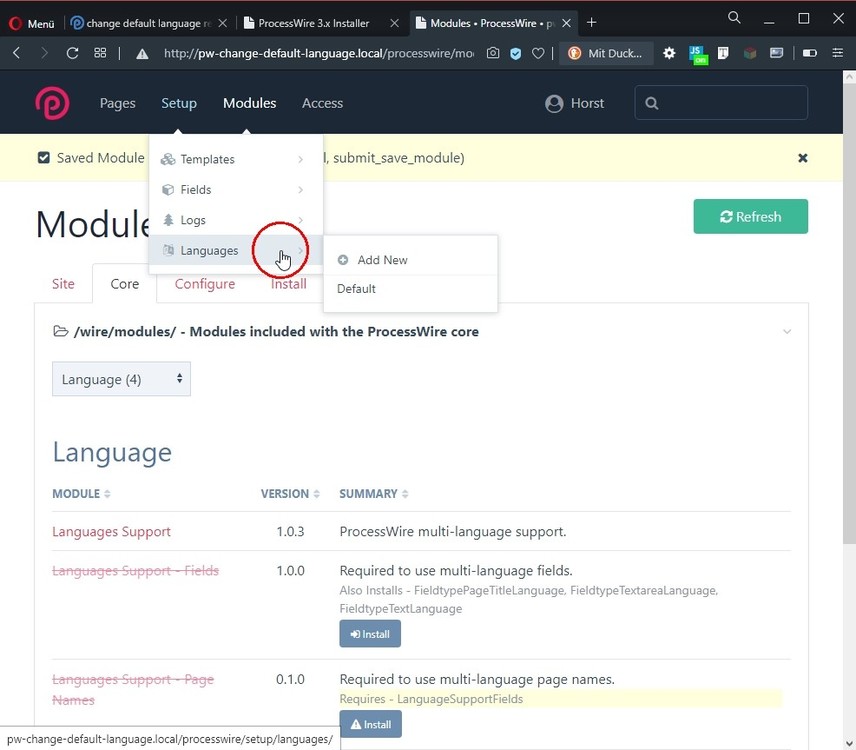
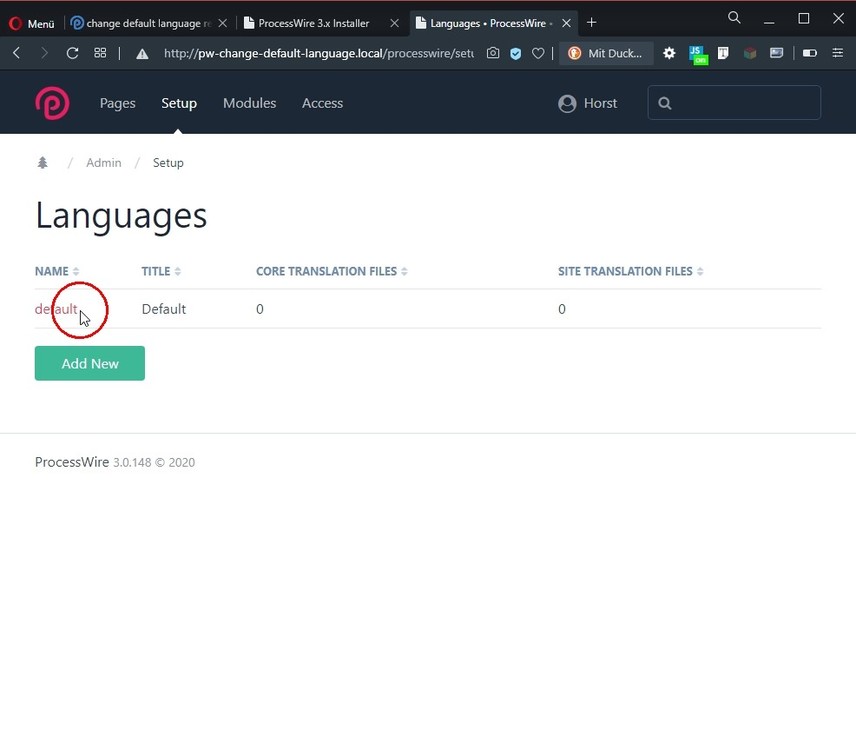
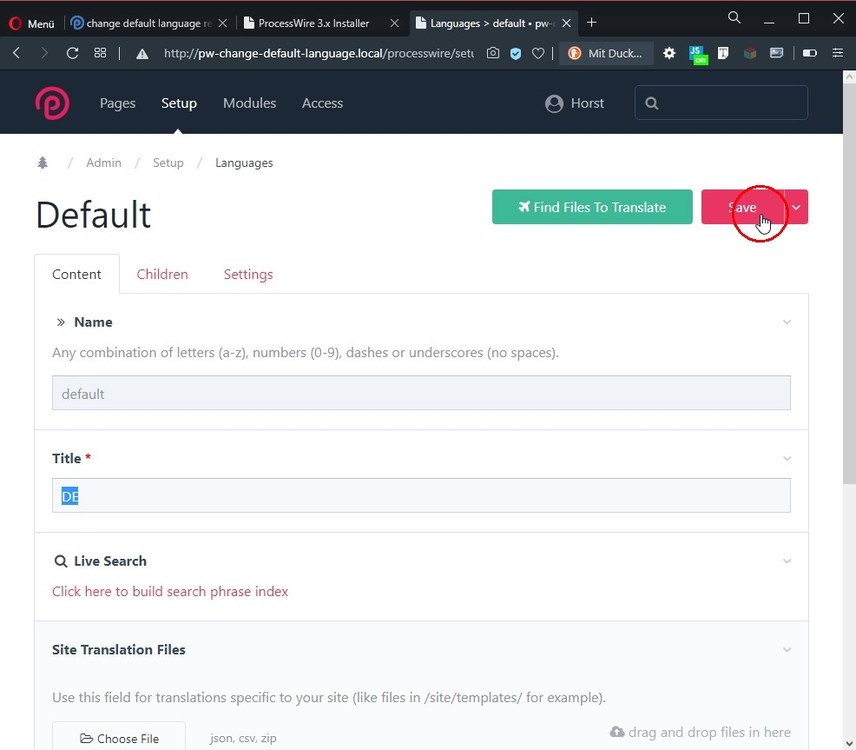
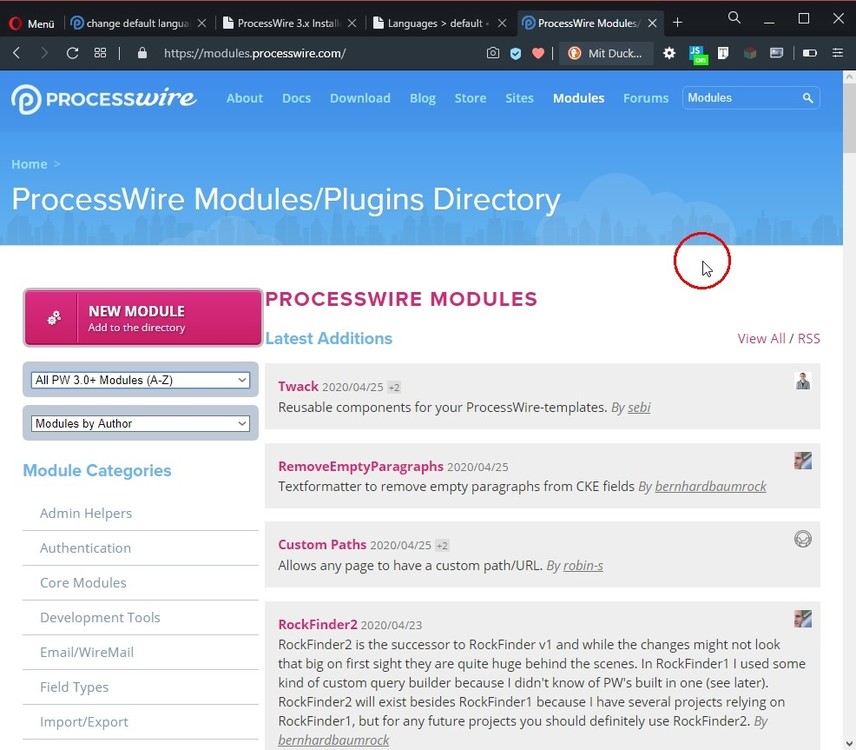
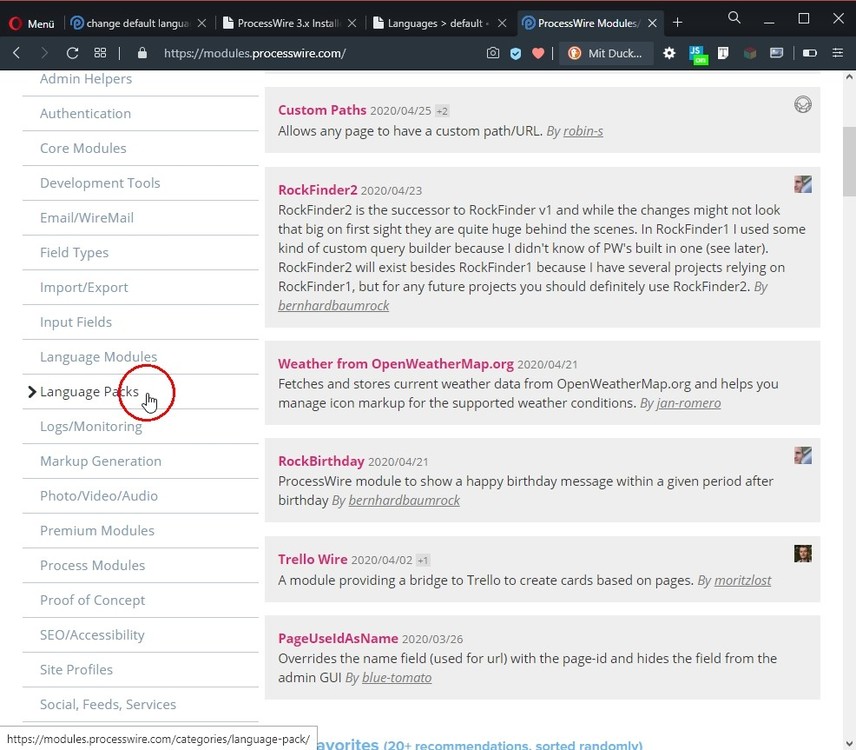
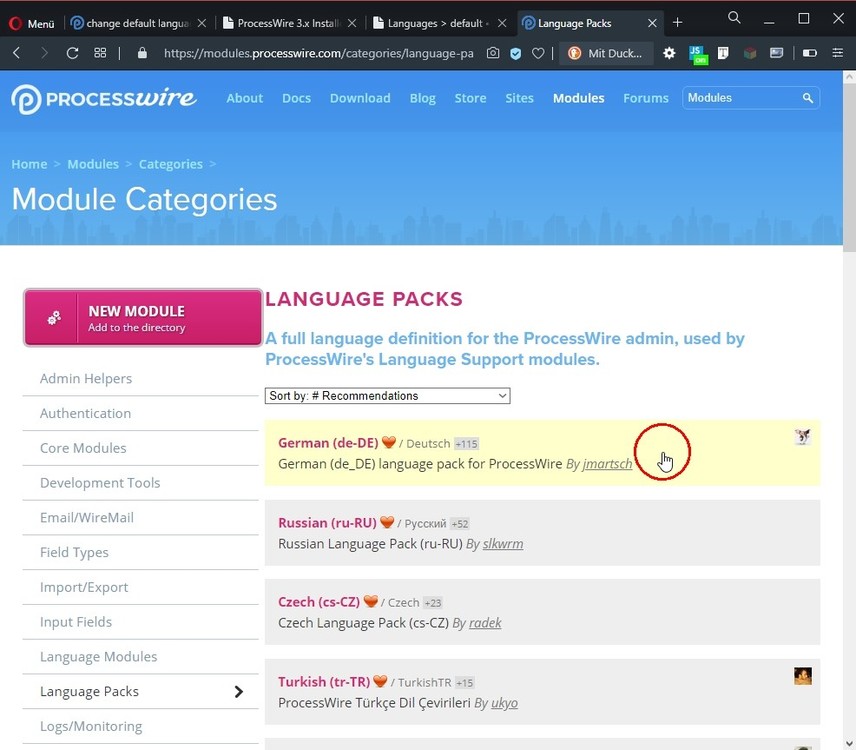
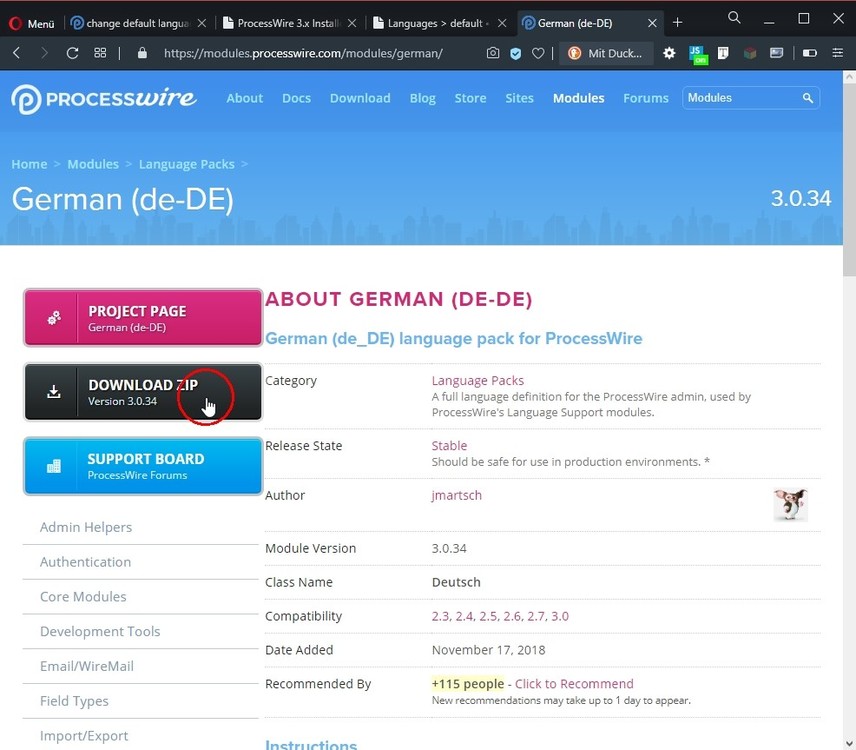
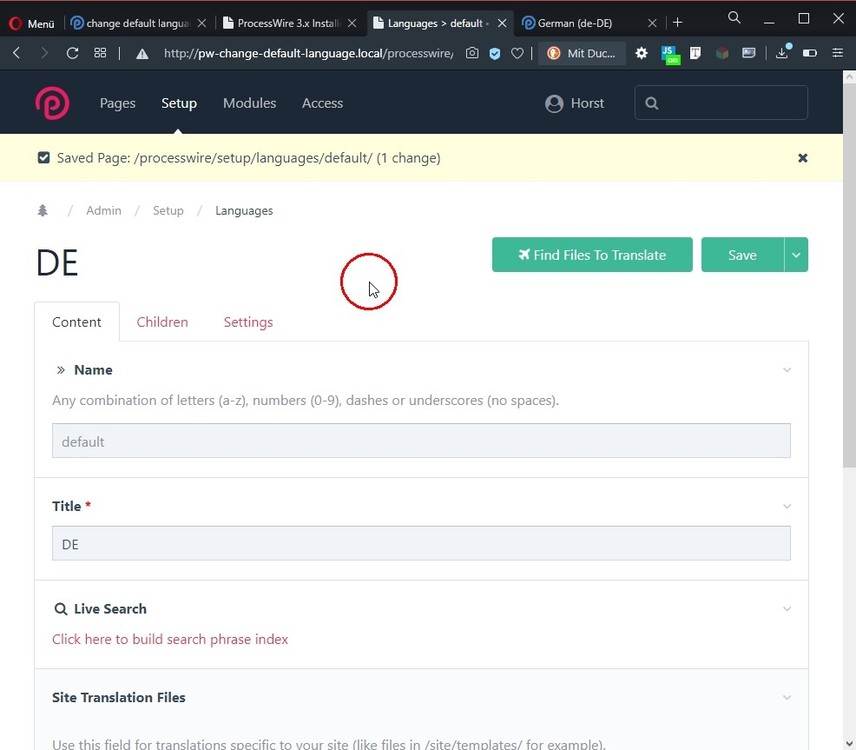
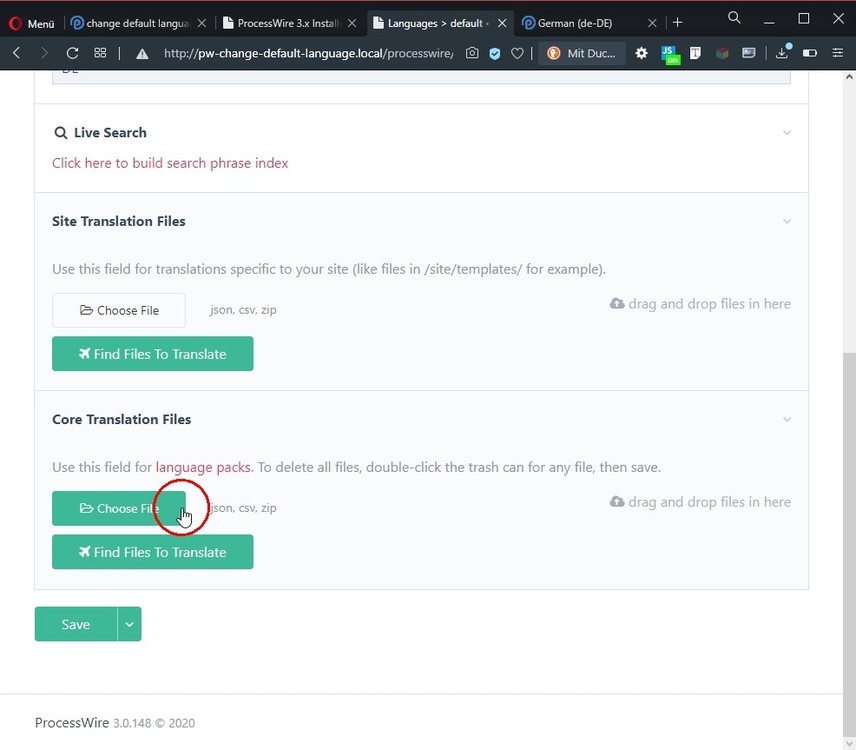
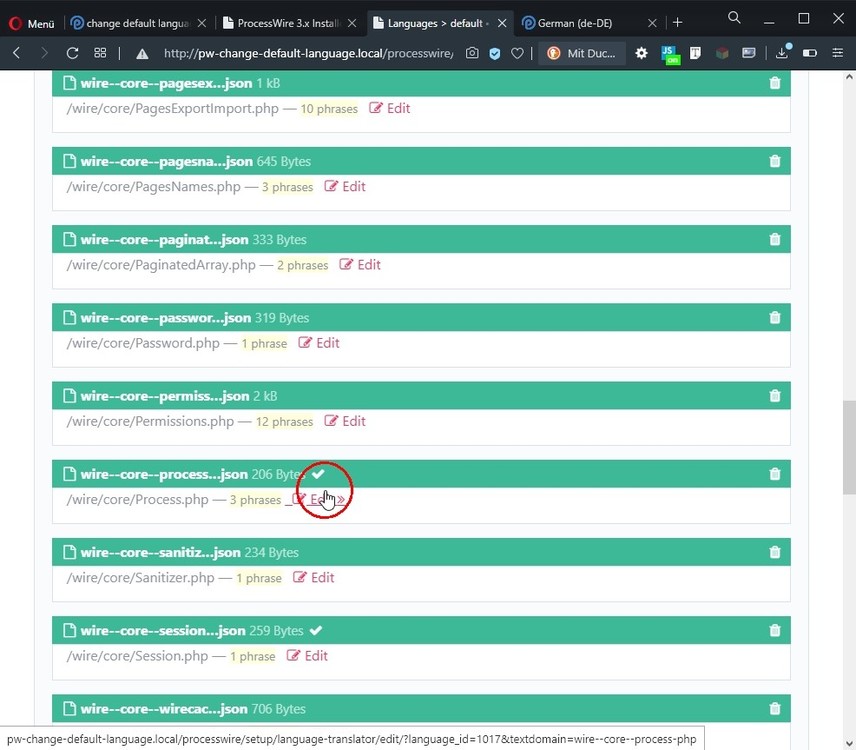
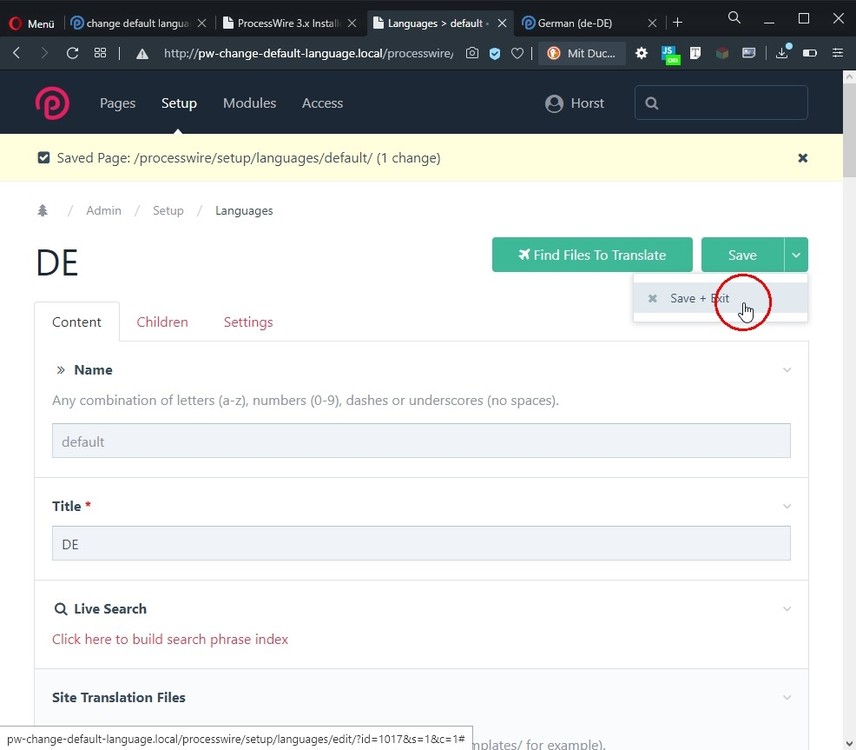
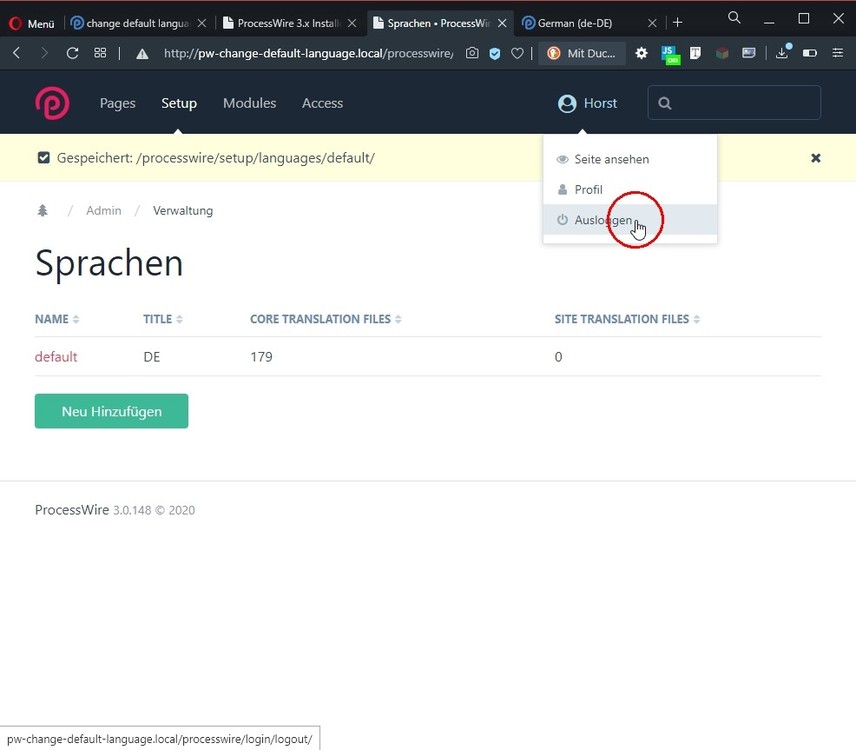
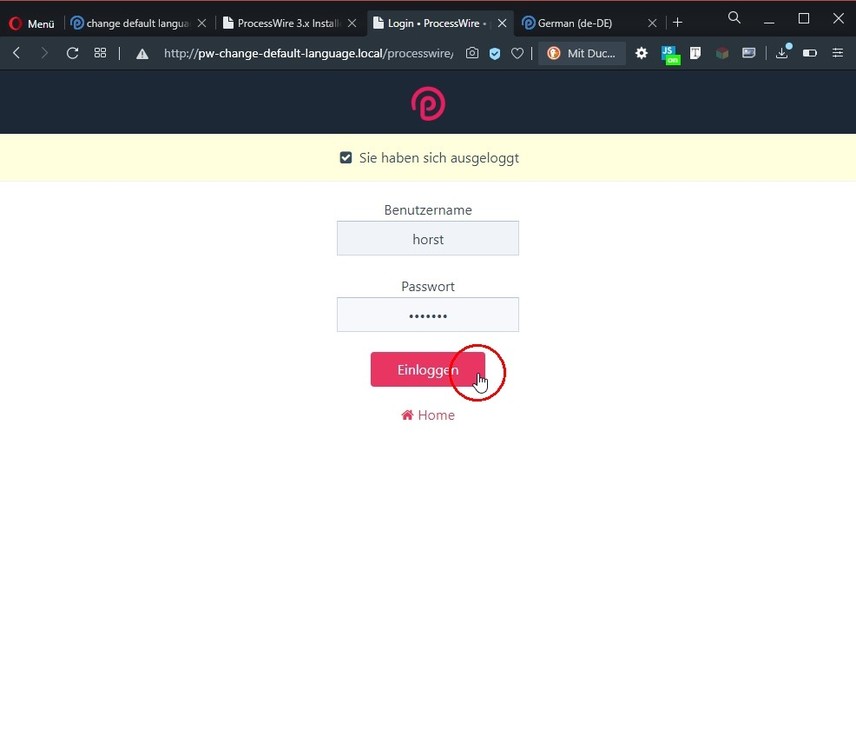
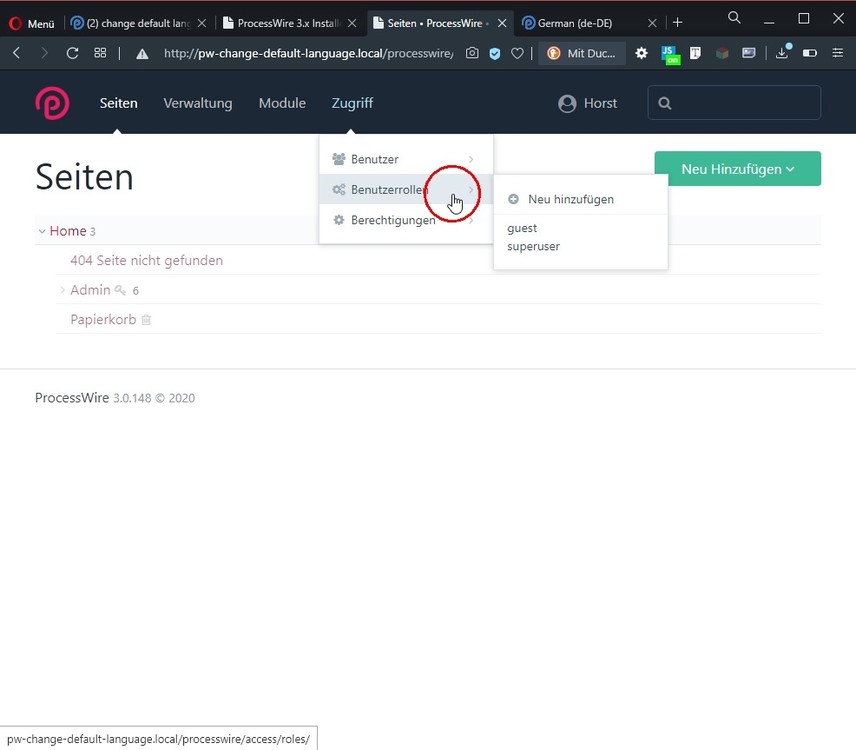
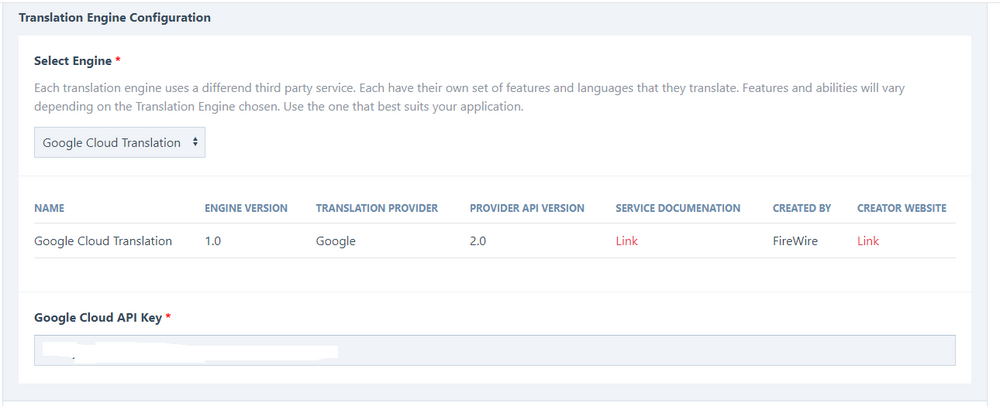

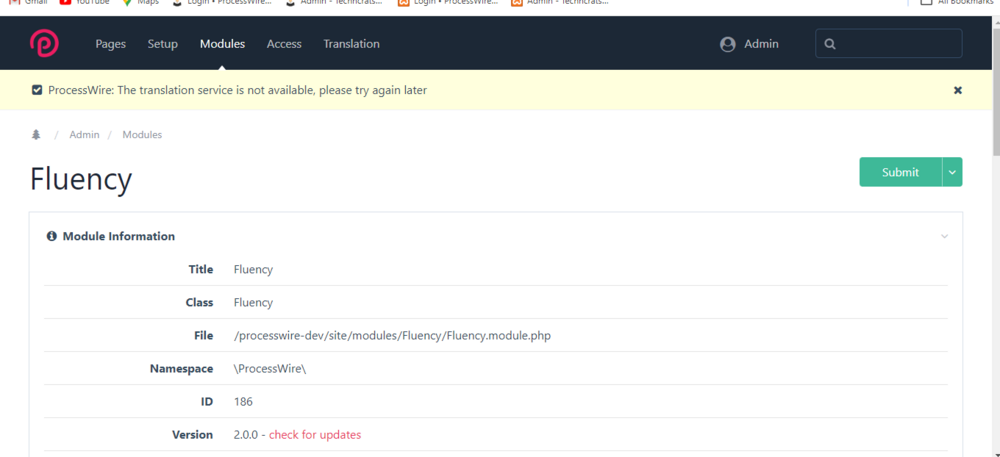
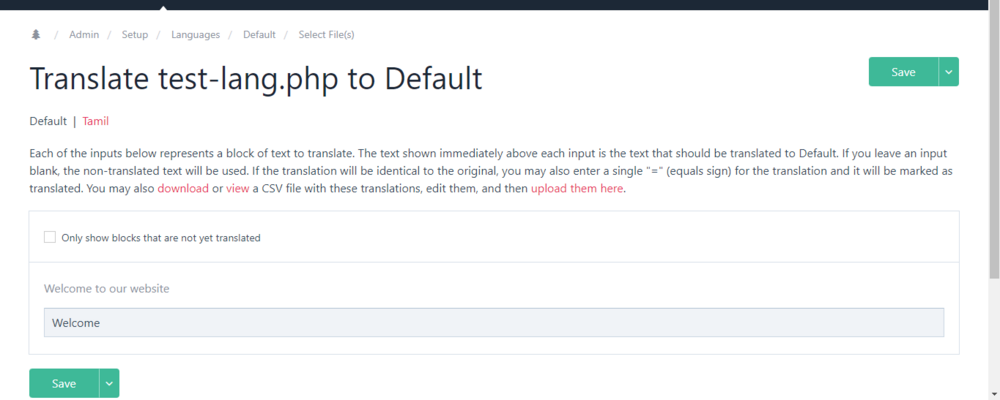
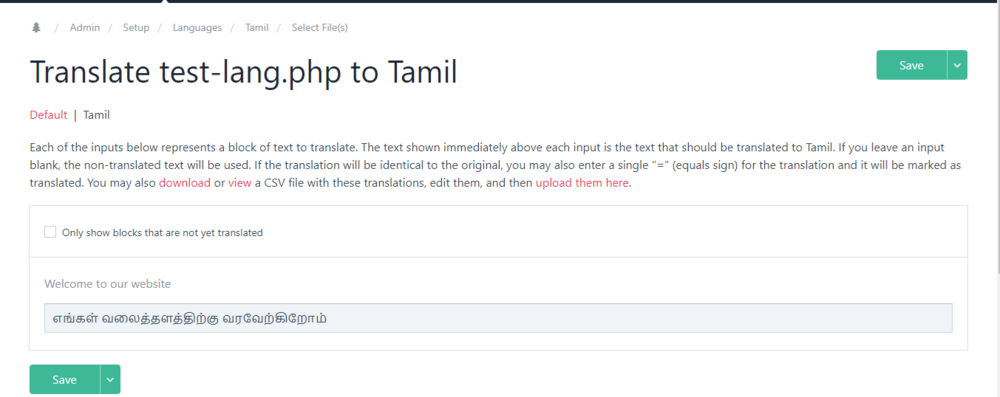
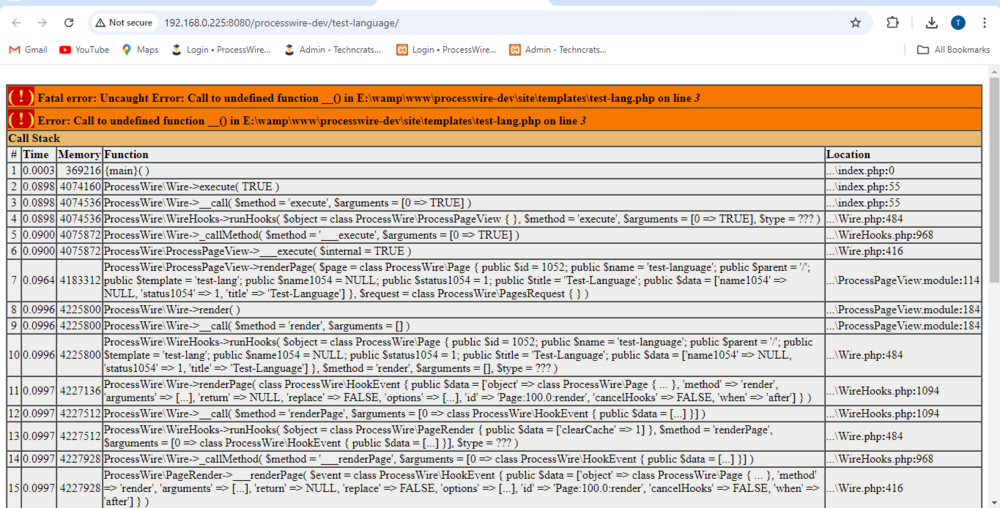


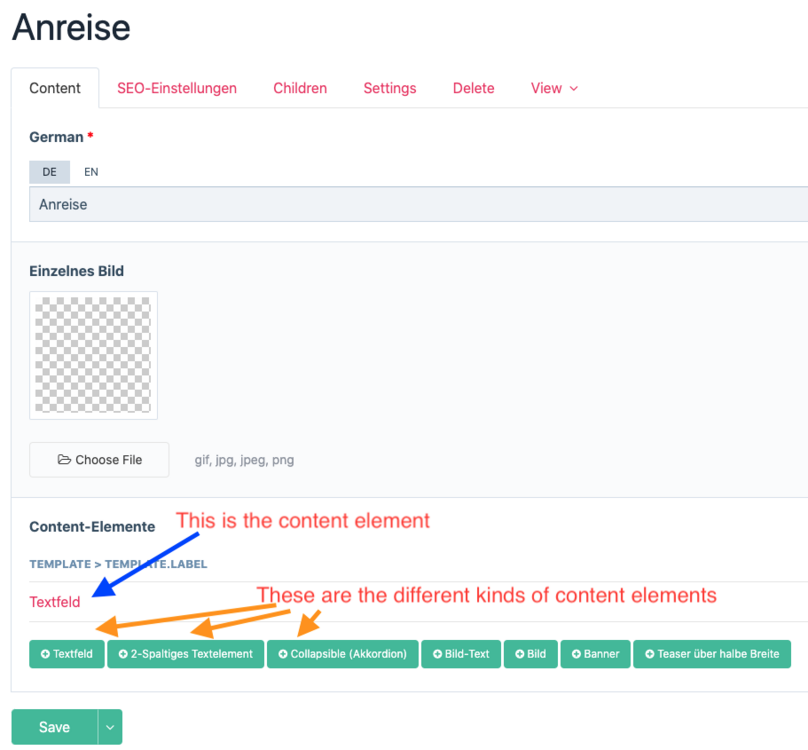
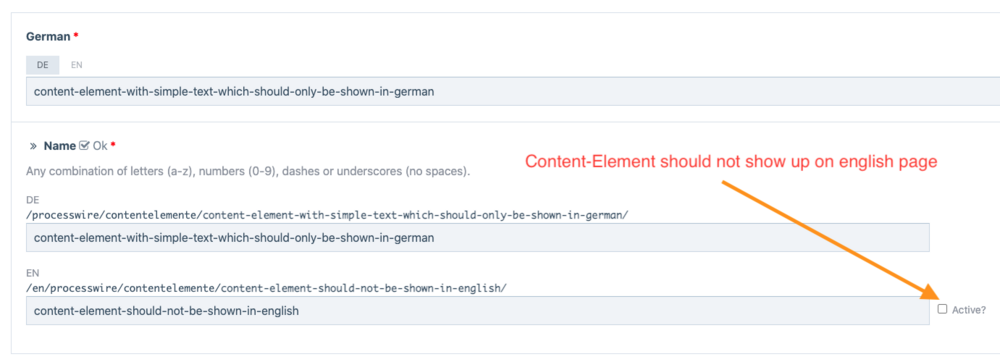


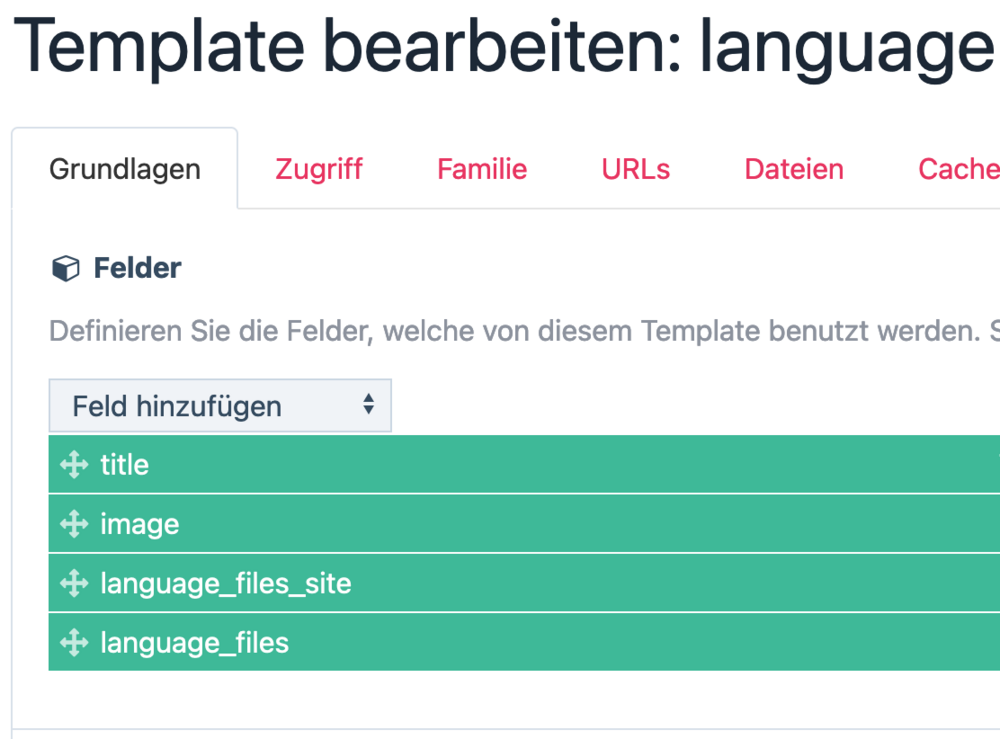













.thumb.png.f36b46f820f4e21117c5a19a3bff62d8.png)
.thumb.png.f5c7fd94d87bf333611153c5b60b1cc1.png)




